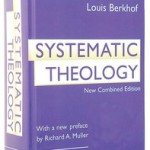 Does the New Testament teach that an unbelieving child disqualifies an elder?
Does the New Testament teach that an unbelieving child disqualifies an elder?
Justin Taylor, father of three, elder at New Covenant Bible Church in St. Charles, Illinois, and vice president of book publishing at Crossway writes:
There can be few things in life more painful than an unbelieving child. And when the child is the son or daughter of an elder, the questions take on a public dimension in the life of the church. Doesn’t the apostle Paul say something about elders needing to have children who are believers? The verses under consideration are 1 Timothy 3:4-5 and Titus 1:6. We’ll look at them in more detail below, but at this point it’s helpful to look at the two different conclusions that faithful interpreters have reached. Douglas Wilson holds to the first option: “If a man’s children fall away from the faith (either doctrinally or morally), he is at that point disqualified from formal ministry in the church” (Douglas Wilson, “The Pastor’s Kid” in Credenda/Agenda, vol. 2, no. 3). Alexander Strauch holds to the second view: “The contrast is made not between believing and unbelieving children, but between obedient, respectful children and lawless, uncontrolled children.” In other words, Paul is talking about “the children’s behavior, not their eternal state” (Alexander Strauch, Biblical Eldership: An Urgent Call to Restore Biblical Church Leadership, 229). Which one is right? To answer that, we have to take a careful look at the key texts.
Faithful Leadership in the Church and Home
In 1 Timothy 3:4, Paul says that an elder “must manage his own household well, with all dignity keeping his children submissive.” In the next verse he explains why: “for if someone does not know how to manage his own household, how will he care for God’s church?” The obvious answer to the rhetorical question is that he can’t. In other words, if you can’t manage your household at home, you won’t be able to care for the household of God. If you regular lose control of your kids, why should you be trusted to lead and protect a flock? John Stott gets the biblical logic right: “The married pastor is called to leadership in two families, his and God’s, and the former is to be the training ground of the latter” (John Stott, Guard the Truth: The Message of 1 Timothy and Titus, 98). None of this is particularly controversial. It’s when we get to Titus 1:6 that the harder question arises.
Must an Elder’s Children Be Believers?
Paul says that an elder’s “children [must be] believers and not open to the charge of debauchery or insubordination.” On first glance, the answer looks obvious. Paul says that an elder’s kids must be believers. But note the footnote in the ESV: believers can also be translated faithful. (It’s important to pay attention to footnotes in the translations of biblical texts, as they alert us when there are other equally valid translation options.) The Greek word here is pistas, which can mean either “believing” or “faithful” in the pastoral epistles. (For example, see “believing masters” in 1 Timothy 6:2 and “faithful men” in 2 Timothy 2:2). Word studies alone can’t solve this—it depends on the context.
But let’s be clear on the two big options: Paul either meant that (1) an elder’s children have to be believers, or (2) an elder’s children must at least be faithful, submissive, and obedient.
How do we decide? The Reformers rightly insisted that we allow Scripture to interpret Scripture. Here we have one author (Paul) writing separately to two young church planters (Timothy and Titus) talking about the same subject (elder qualifications). How do the two passages about family life compare? When we look at the Greek, we see how similar the language is between 1 Timothy 3:4 and Titus 1:6. You can see the similarities even if you don’t know Greek:

The most natural assumption is that Paul is saying the same thing in slightly different ways. (As Andreas Köstenberger points out, it would be unusual if Paul gave Timothy a more lenient standard about elder’s children and Titus a more stringent one.) If they mean the same thing, then to have children who are pista means to have children who are hypotag?. And what does it mean to have children who are hypotag?? Paul explains it in the next clause: “not open to the charge of debauchery or insubordination” (see note below*).
Four More Reasons
With that in mind, here are four further reasons that incline me to believe that Paul is referring to the submission and obedience of an elder’s children, and not to their salvation. Continue reading →



